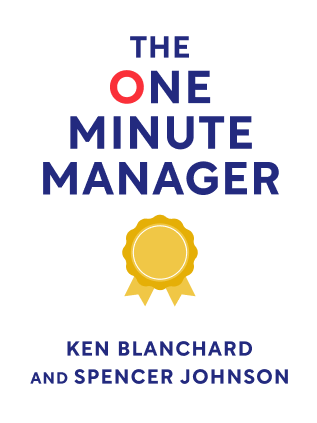

This article is an excerpt from the Shortform book guide to "The One-Minute Manager" by Ken Blanchard and Spencer Johnson. Shortform has the world's best summaries and analyses of books you should be reading.
Like this article? Sign up for a free trial here .
What is a one-minute manager? Why is it important to empower your employees?
The One-Minute Manager by Ken Blanchard teaches managers how to empower their employees. One-minute managers know that people are a business’s most important asset and manipulation is never the way to go.
Learn how you, too, can become a better manager using Ken Blanchard’s tips.
The One-Minute Manager by Ken Blanchard
The One-Minute Manager, Ken Blanchard’s business parable, is a guide for managers looking to empower their employees and teach them to succeed in their jobs, with minimal direct guidance. As the title suggests, most of what we consider “management” takes one minute or less. A one-minute manager builds their employees up by defining success through short one-minute goals and performance standards; providing immediate and direct positive feedback through one-minute praisings; and offering constructive criticism aimed at correcting behavior through one-minute redirects. This management style motivates employees and gives them the confidence and skills to become stewards and champions of their own success.
One-Minute Managers Invest in People
One-minute managers invest in the organization’s most important asset: its people. They know that the best minute you spend is the one spent investing in people. Think about this: 50-70 percent of a typical company’s budget gets spent on salary, but less than 1 percent on training. Given how important employees are to the achievement of company goals, this is a gross misallocation of resources: more gets spent on buildings and equipment than people!
One-minute managers put in the work to make their employees self-supported and self-motivated. They don’t make decisions for their employees: they guide them to make decisions for themselves.
This is more important than ever before. New technologies and tools of communication are transforming the way organizations operate every day. Your organization needs to be quick on its feet to survive: the old top-down, command-and-control style of management is simply too slow and unresponsive to keep organizations agile and adaptive. One-minute managers succeed where other managers fail, because they empower the people in their organization to take responsibility and manage themselves, with minimal direct input. This saves valuable time and resources.
One-Minute Managers Empower Employees
Too many managers practice manipulation: getting people to do things that they’re either not aware of or don’t agree to. Manipulative managers often use a mix of threats, coercion, and neglect to force people to do their bidding. Employees feel taken advantage of, misled, and used, and end up bitter and having learned nothing from their experience.
One-minute managers believe in empowering employees, not manipulating them. An empowerment-focused management style treats everyone as a potential high-achiever. You bring out the best in people when you give them the structure and the right mix of positive and negative feedback that motivates them to perform well on their own. You can only do this, however, if you treat them as full human beings worthy of respect. They aren’t cogs in a machine or robots programmed to do a task: they’re people, and you need to take account of their complexity and emotions as people if you’re to manage them successfully.
Giving your people clear goals and then judging their performance based on those goals puts everyone on the same page and creates a truly honest, open, and empowering working relationship: goals begin positive behaviors and consequences maintain them.

———End of Preview———
Like what you just read? Read the rest of the world's best book summary and analysis of Ken Blanchard and Spencer Johnson's "The One-Minute Manager" at Shortform .
Here's what you'll find in our full The One-Minute Manager summary :
- How to empower your employees and teach them to succeed
- Why immediate and direct feedback is the most effective
- How to offer constructive criticism to correct behavior






